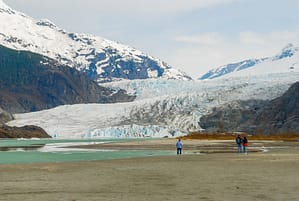Videos, soundbites, reports and images: during this pandemic, we bring both kids and adults some entertainment and information about our beautiful cryosphere from all around the world.
If after some weeks, you feel like you’re walking on thin ice with your children at home:
Put them in front of Arte and pick your language (French or German): your younger kid(s) will for instance discover what an iceberg is with animated storyboards, whilst the older one(s) will hear the story of Mathias, an Argentinian teenager who feels “very privileged to live so close to glaciers”.
We also recommend the well-documented and pedagogical film called “Sur le front” by French journalist Hugo Clément. Working for France 2 TV, he went around the globe with a camera to make the evolution of glaciers more visible and comprehensible to the public at home. Peru, Austria, Norway, France… he collected many insights on site. You can watch his movie here.
If after some weeks, you are sick of the same conversations and you feel like you need an ice breaker in your next Zoom conference:
Ask your contacts if they can imagine what a melting iceberg sounds like. The Guardian reporter Jonathan Watts went to Antarctica for a long-documented article full of images, videos and insights. He, amongst another things, reports on the sound of icebergs melting. “By listening, we had seen so much”, he writes. You can read his piece and listen up here.
If after some weeks, the freeze on your activities has led to using an airplane less frequently:
Then rejoice! In India, the majestic Himalaya peaks are visible after 30 years: this phenomenon is made possible by a dramatic improvement in air quality in recent weeks, after industries shut down, cars came off the road and airlines canceled flights in response to the coronavirus pandemic.
If after some weeks, you have the feeling the whole world is fueled by Covid-19 cases:
Think South! The Financial Times published a testimonial from Antarctica, described as “the last continent without corona”, by British scientist Kelly Hogan. She is a 41-year-old marine geologist and geophysicist currently based in the Rothera Research Station. Hogan is said to be “cooler than a glacier when contemplating her strange isolation and delayed homecoming”, but admits this trip has been unusually “taxing emotionally”.



